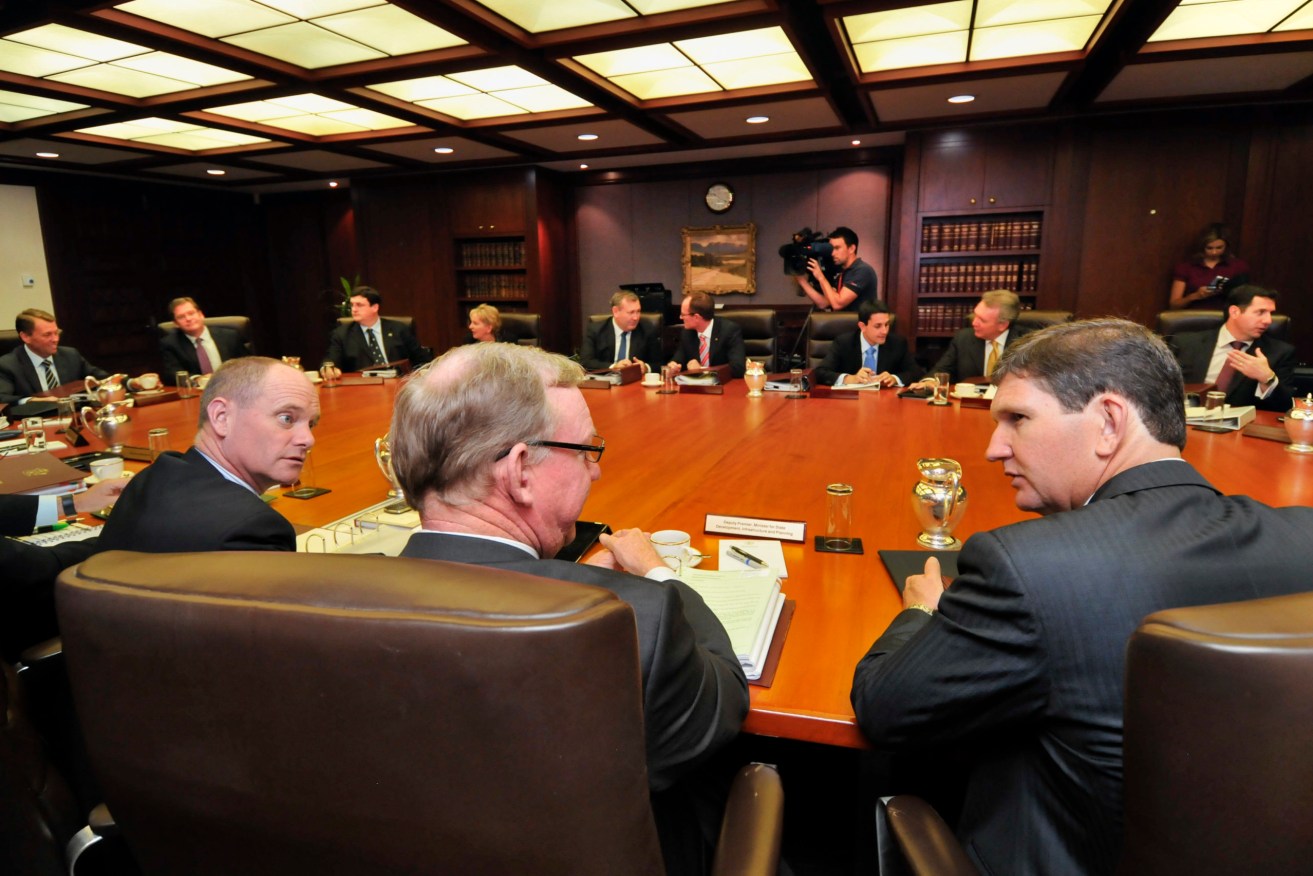Old, getting older: Email probe now stretches back to Newman Govt era
The Palaszczuk Government continues to face questions over the use of private emails for official business. Now, the Newman Government faces questions too.

Then Queensland Premier Campbell Newman (left) talks to Jeff Seeney (middle) and Lawrence Springborg (right) ahead of the LNP Government's first Cabinet meeting in 2012. (AAP Image/John Pryke)
Four years ago, the Crime and Corruption Commission warned the Labor government that ministers using private emails for official business “lacks transparency and is a corruption risk”. Public records are meant to be kept, tracked, and archived, partly for transparency and accountability purposes.
It followed Transport Minister Mark Bailey using a Yahoo account to correspond on government issues, including appointments, and then deleting the emails when subjected to a Right to Information request. The CCC did not recommend any action against Bailey and the emails were ultimately recovered.
The saga has continued since then, however, with Premier Annastacia Palaszczuk having to explain her own use of private emails, and being cleared last week of misleading parliament.
Now, CCC chairman Alan MacSporran has revealed the State Archivist, who initially investigated the saga, planned to contact “former ministers of the last two governments to request that they review their private email accounts for public records that may be in their possession”.
Another recommendation from the State Archivist, again backed by the CCC, was for a review of the processes in place to manage public records created or received within private emails.
“The CCC is currently awaiting advice from the (Queensland State Archives) confirming action taken in implementing the accepted recommendations,” MacSporran wrote in a letter to a parliamentary committee.
“As soon as the advice is received, I will provide further information to the committee.”
The response came after departing State Archivist Mile Summerell used his last annual report to warn, more broadly, of legislation failing to keep up with technology. His counterparts, in other jurisdictions, have previously raised concern over the use of instant messaging apps.
“New communication technologies are creating new challenges for public authorities, the volume of public records in particular being created is a significant challenge,” Summerell wrote.
“There is an increasing risk that key public records that should be made and preserved for the benefit of current and future generations may be lost, or worse, never created at all.”












